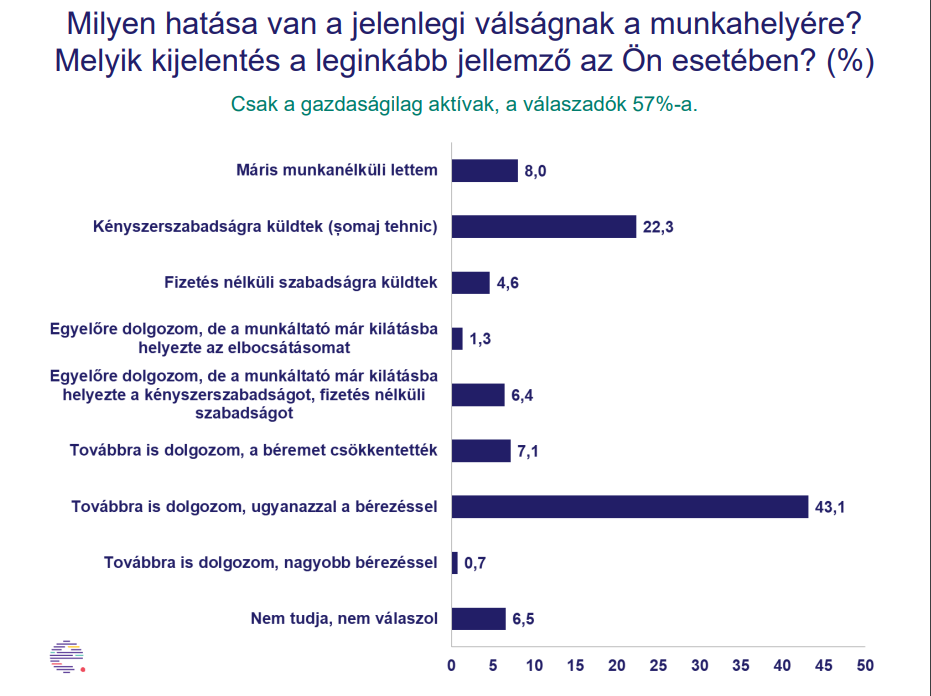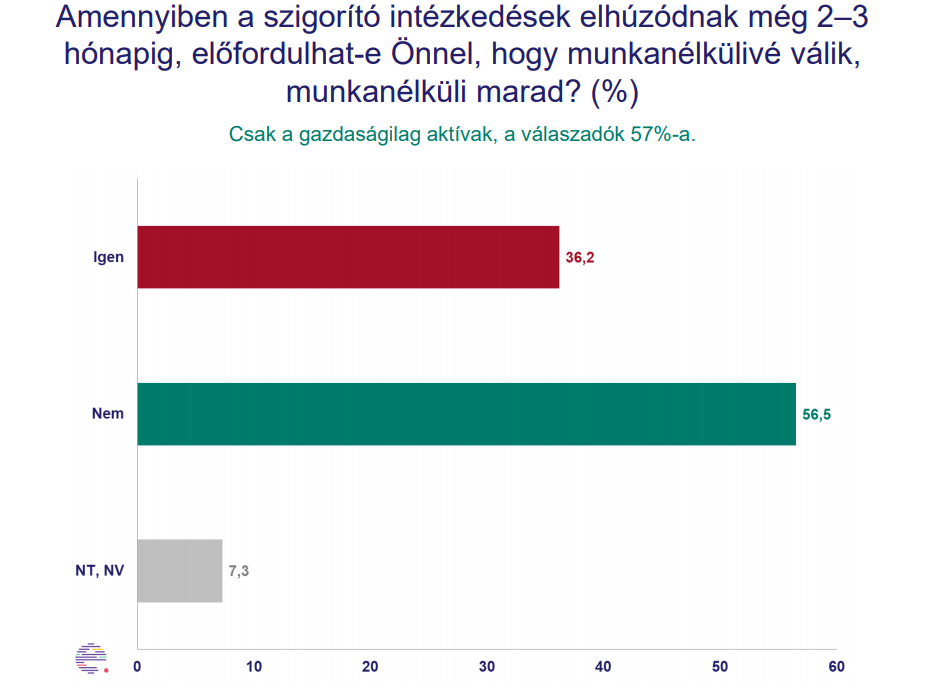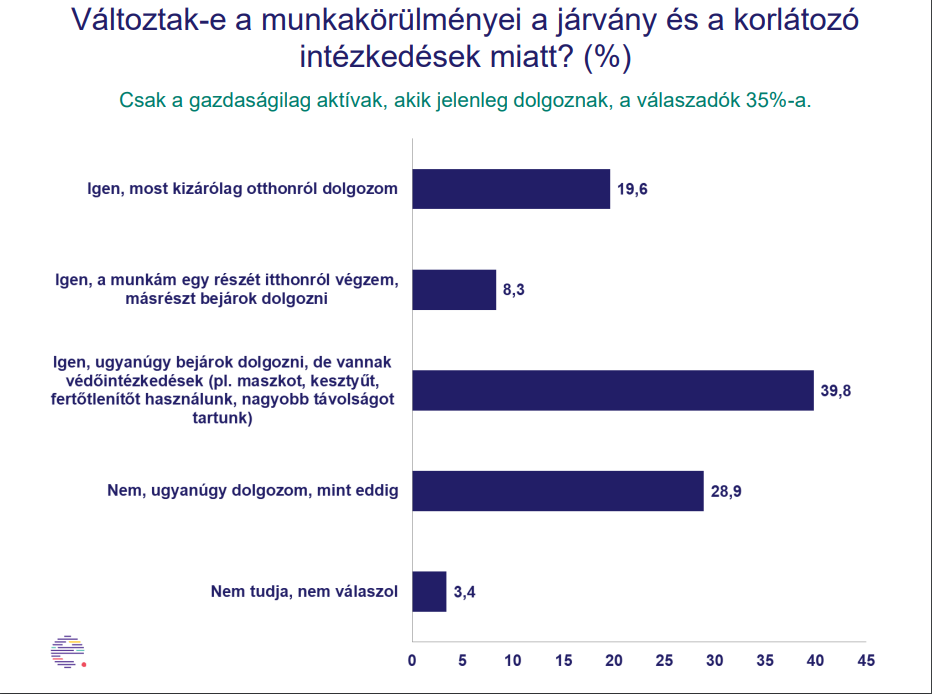The labor market has changed drastically due to the COVID-19 epidemic, as only 63 percent of those who were working in February were still active at the beginning of April, results from the Coronavirus in Transylvania survey show. The study was conducted voluntarily by the Közpolitikai Elemző Központ Egyesület (Association of the Public Policy Analysis Center), which manages Erdélystat, a statistical website on Transylvania, and by the SoDiSo Research polling group. According to the survey, 36 percent of those who are still active in the labor market might lose their jobs if the restrictive measures are extended by another two or three months.
The study focused on five major problems. The first, second and third parts of the results, regarding people’s general health and attitudes, issues with social distancing and movement restrictions, and economic and social challenges, are already available on TransylvaniaNOW. In this fourth part, we focus on the changes in the labor market.
According to the study, the labor market has undergone a major transformation: The private sector, tourism, hospitality, commerce, light industry, a part of the construction industry, and transportation have been most affected. Only 63 percent of those active in the labor market in February were still active at the beginning of April when the study was conducted. As the results show, of those who were actively employed in February, 8 percent ended up unemployed, 22 percent is on forced leave, and 5 percent is on unpaid leave. Another 8 percent said their employer had already contemplated forced leave or dismissal.

Those who are still active in the labor market aren’t seeing a more prosperous future: 36 percent of them said they might lose their job or could become unemployed if the restrictive measures are extended for another two or three months. The jobs of intellectual and IT workers and employees of the public sector (public administration, education, healthcare) and basic service sector (energy, gas, water, sewage and waste) are more secure.
Those who work in agriculture face a lower risk. The farmers who produce food for their own families are in a better situation as well, but a significant proportion of those working as employees are at risk of becoming unemployed or going on forced leave.

But not only the labor market has changed; working conditions have changed as well. Out of those still working in April, 16 percent said that their working hours were reduced significantly, while another 20 percent reported that their working hours were slightly reduced. But the majority of the respondents, 54 percent said they are still working their usual hours. And 8 percent of the respondents reported an increase in hours–above average among intellectual workers in public administration, healthcare, education and the information and communication sector.

One-fifth of active respondents work from home, and another 8 percent work partially from their homes but sometimes go to their workplace. Almost 70 percent still go to their workplace, but most of them adopted protective measures (wearing masks or gloves, social distancing). Those who continue to work under usual conditions (29 percent of respondents who are still active in the labor market) are overrepresented in agriculture, construction, those living in rural areas, and those with a lower level of education.
The study was conducted between April 1-10, with the participation of 7,450 people. The survey was carried out online and via phone.
Title image: 36 percent of working respondents said they might lose their job or become unemployed if the restrictive measures are extended. Photo: Egészségkalauz.ro